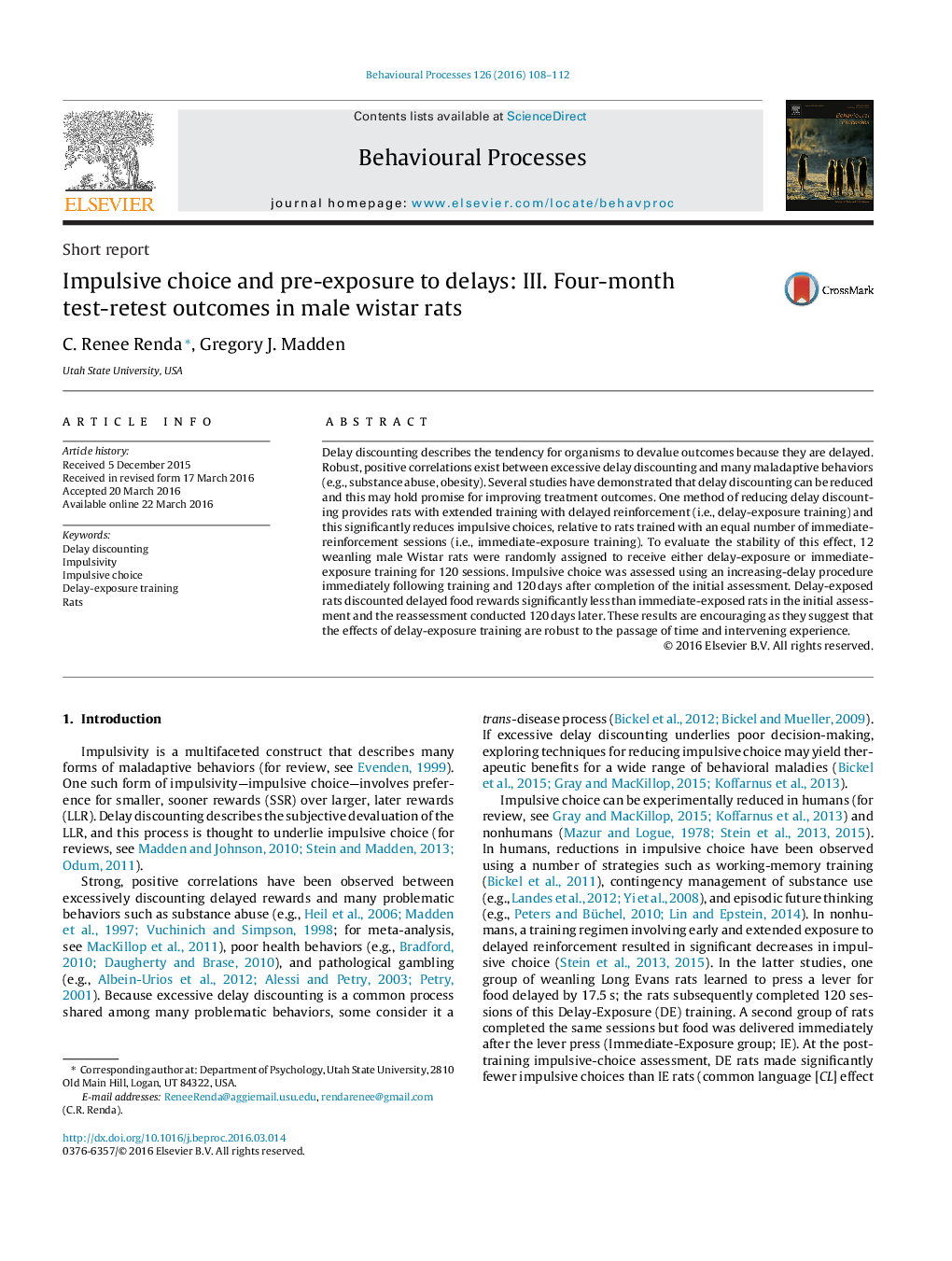| Article ID | Journal | Published Year | Pages | File Type |
|---|---|---|---|---|
| 8497107 | Behavioural Processes | 2016 | 5 Pages |
Abstract
Delay discounting describes the tendency for organisms to devalue outcomes because they are delayed. Robust, positive correlations exist between excessive delay discounting and many maladaptive behaviors (e.g., substance abuse, obesity). Several studies have demonstrated that delay discounting can be reduced and this may hold promise for improving treatment outcomes. One method of reducing delay discounting provides rats with extended training with delayed reinforcement (i.e., delay-exposure training) and this significantly reduces impulsive choices, relative to rats trained with an equal number of immediate-reinforcement sessions (i.e., immediate-exposure training). To evaluate the stability of this effect, 12 weanling male Wistar rats were randomly assigned to receive either delay-exposure or immediate-exposure training for 120 sessions. Impulsive choice was assessed using an increasing-delay procedure immediately following training and 120Â days after completion of the initial assessment. Delay-exposed rats discounted delayed food rewards significantly less than immediate-exposed rats in the initial assessment and the reassessment conducted 120Â days later. These results are encouraging as they suggest that the effects of delay-exposure training are robust to the passage of time and intervening experience.
Related Topics
Life Sciences
Agricultural and Biological Sciences
Animal Science and Zoology
Authors
C. Renee Renda, Gregory J. Madden,
